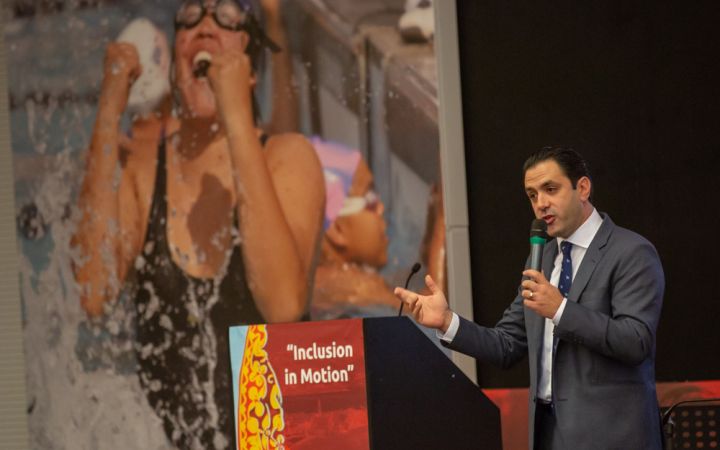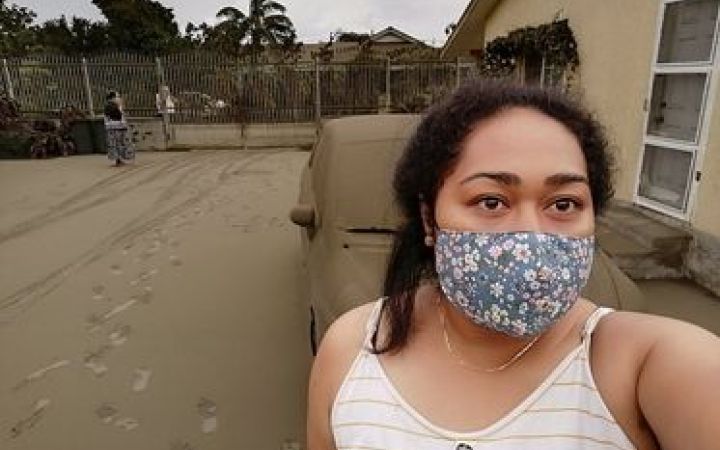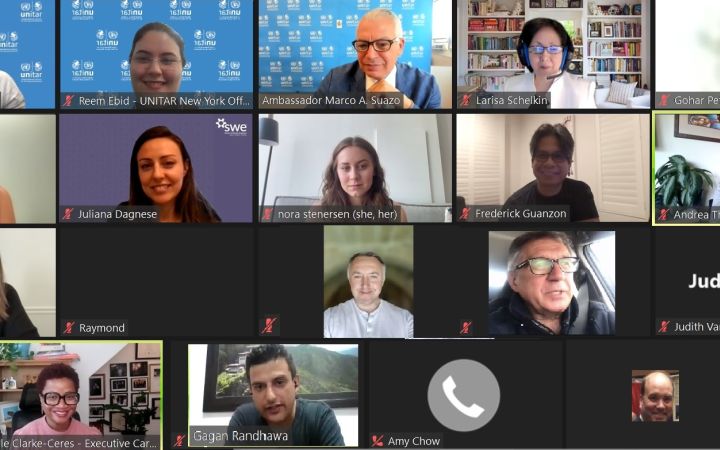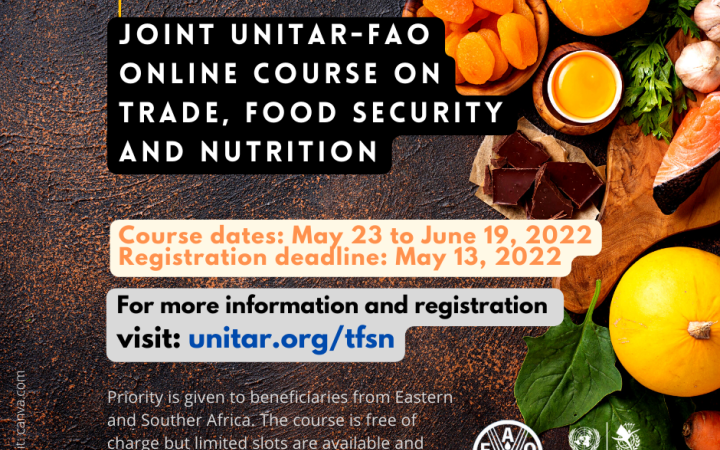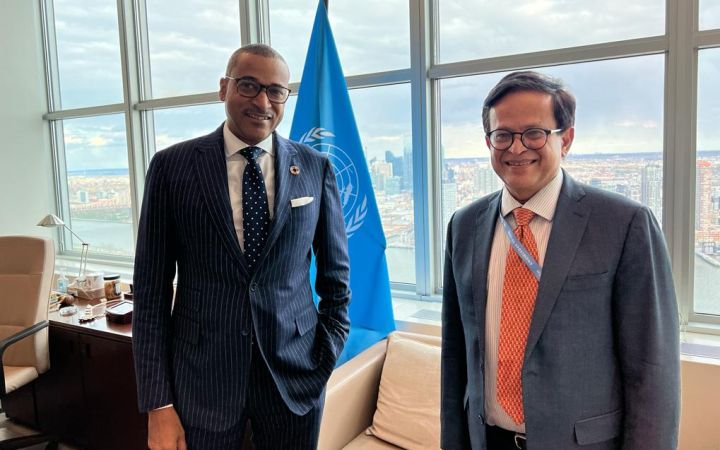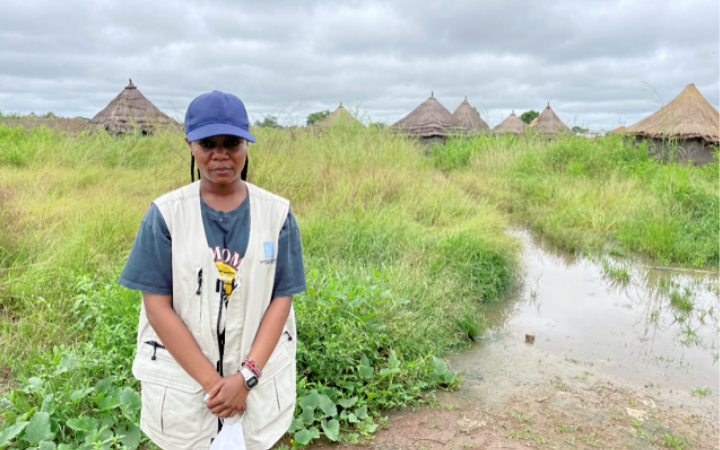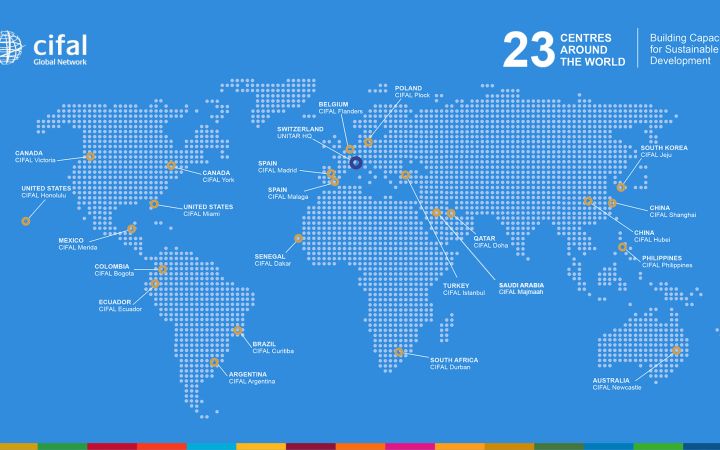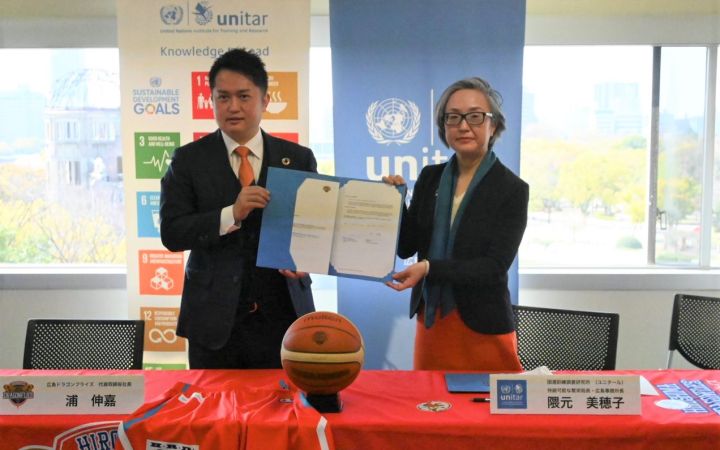Displaying 911 - 920 of 1755
25 April 2022, Geneva, Switzerland – The United Nations Institute for Training and Research (UNITAR) has appointed the President and Managing Director of Special Olympics Europe Eurasia David S. Evangelista to the Advisory Board of its Division for Multilateral Diplomacy. The two-year term takes effect from January 2022 to December 2024.
April 2022 - The volcanic eruption and subsequent tsunami that hit Tonga in early 2022 is a stark reminder of the reality of disasters, and the fact that a disaster, can hit anywhere at any time and render communities vulnerable to massive damages. Mele Moimoi, a disaster risk reduction trainer at Tonga National Council of Churches (TNCC), and an alumna of UNITAR programme in 2021, tells her story.
22 April 2022, New York, United States (Virtual) – The closing ceremony for the Global Diplomacy Initiative Programme (GDI) took place to celebrate the GDI fellows’ graduation at the United Nations Institute Training and Research office in New York. The GDI programme provides a unique training experience for professionals and students in higher stages of education who are interested in the United Nations to understand how it functions while developing technical knowledge and gaining learning experience from experts.
20 April 2022, Geneva, Switzerland - UNITAR and the Food and Agriculture Organization of the United Nations (FAO) recently signed an agreement to deliver a joint online course on Trade, Food Security and Nutrition for officials from Eastern and Southern Africa. This is an updated version of the same course delivered in 2019 which generated a great interest across the region.
20 April 2022, New York, USA. - The United Nations Assistant Secretary-General, Executive Director of UNITAR Mr. Nikhil Seth has made an official visit to New York from 18 to 25 April 2022 to lead important meetings at the United Nations Headquarters and meet with the Deputy Secretary-General Amina Mohammed, Chef de Cabinet of the Secretary-General Courtenay Rattray, President of the General Assembly Mr. Abdulla Shahid, President of ECOSOC Ambassador Collen Kelapile, Under Secretary-Generals Vladimir Voronkov, Rosemary DiCarlo, and Alexandre Zouev, as well as other principals from across the UN system and UN Missions.
“Guidance from the course was essential in informing my project strategy and there is a lot of change in how I think that has really been informed by the training”.
12 April 2022, Hiroshima, Japan – UNITAR Division for Prosperity invites women in Afghanistan to apply to the Leading Inclusive 4IR: Empowering Women in Afghanistan for the Future of Work through Digital Reskilling programme. The application deadline is 20 April 2022.
7 April 2022, Geneva, Switzerland – The CIFAL Global Network (CGN) is UNITAR’s global network of affiliated training centres, uniquely positioned to support leaders on the local level in their quest to advance sustainable development.
7 April 2022, Hiroshima, Japan – Japanese professional basketball team Hiroshima Dragonflies and UNITAR have agreed to work together towards the realization of the Sustainable Development Goals (SDGs). On 7 April 2022, Hiroshima Dragonflies president and CEO Mr. Nobuyoshi Ura and UNITAR Division for Prosperity director Ms. Mihoko Kumamoto signed the memorandum of understanding in a ceremony at the UNITAR Hiroshima Office.
6 April 2022, Hiroshima, Japan – United Nations Institute for Training and Research (UNITAR) Division for Prosperity, with Sunlight (a home-care brand under Unilever Kenya Limited) and Absa Bank Kenya, invite women in Kenya interested in entrepreneurship to apply to the Entrepreneurship, Innovation and Leadership Training for Women Entrepreneurs in Africa programme. The application deadline is 15 April 2022.


